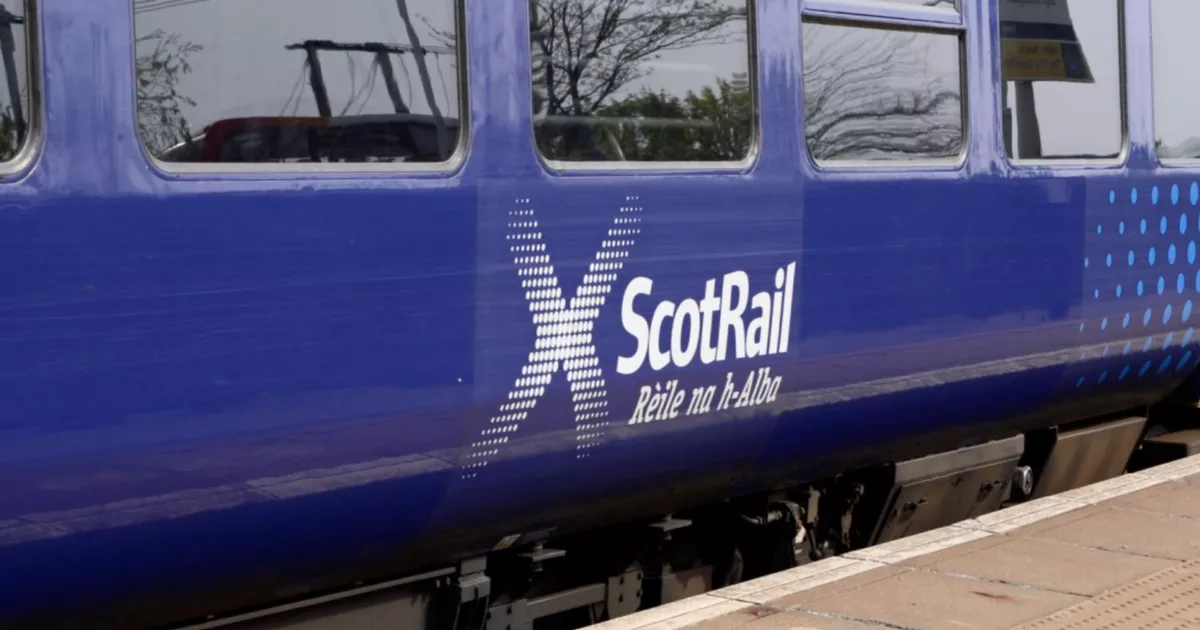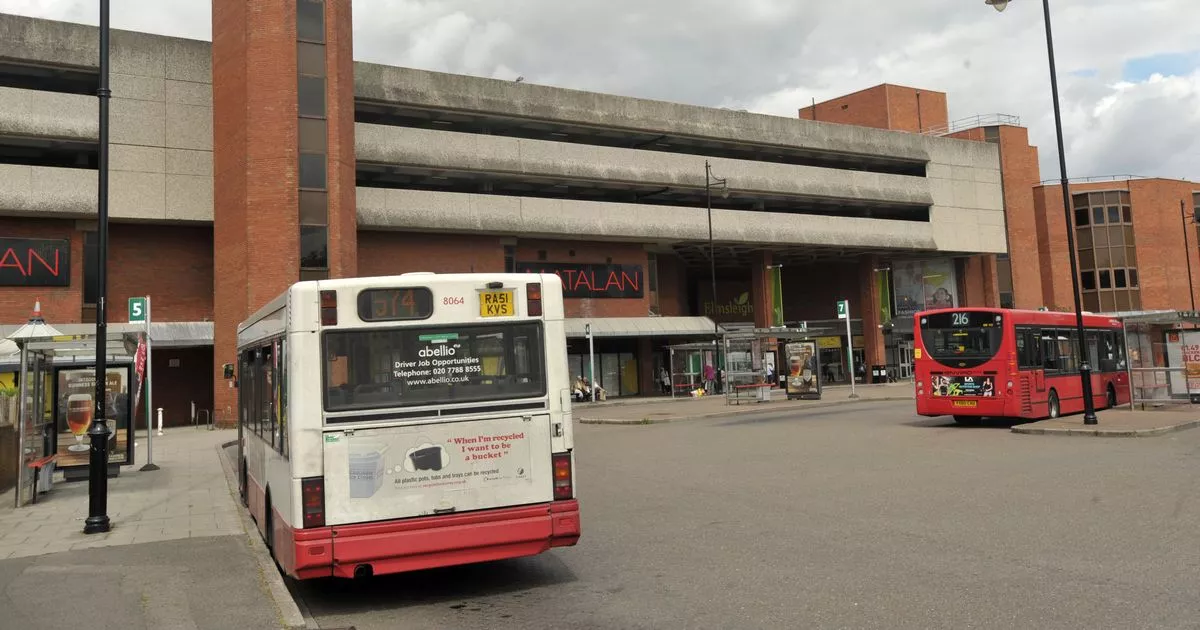overthewater
Established Member
- Joined
- 16 Apr 2012
- Messages
- 8,176
Personally I do not agree, I also don't believe Abellio can provide any decent service, so no wonder they want Fransching because it's the only way that lot could EVER get bus routes, they are that bad.

 www.route-one.net
www.route-one.net

Bus franchising: It's now the only way, says Abellio - routeone
The pendulum for buses has now swung unequivocally in favour of bus franchising, Abellio Deputy MD and COO Alan Pilbeam has said,
The coronavirus COVID-19 crisis has wreaked havoc on the British bus industry in a way that could never have been predicted. How it recovers will be a story that takes time to tell, but for Abellio, the pendulum has now swung unequivocally to favour of bus franchising.
Indications that Chancellor Rishi Sunak will spend heavily on the country’s economic recovery, coupled to a focus on ‘green’, makes now the time to proceed with franchising, says Abellio Deputy Managing Director and Chief Operating Officer Alan Pilbeam (pictured, above). And it must be done quickly, he adds.
Mr Pilbeam notes that the commercial bus market has, except for some ‘islands’, largely returned a continuing decline in patronage. He accepts that congestion has played part in that, but he points out that bucking such a trend it is not something that will come easily.
“There has not been the progress in terms of bus priority improvements that operators want. My point is that if the industry has not succeeded in winning that argument so far, what is going to change in the future so that it does?”
He believes that improvements to factors outside the industry’s remit are more likely to come about if local authorities (LAs) have ultimate control of the service that is delivered. That product must also be integrated with other modes, including walking and cycling, adds Mr Pilbeam.
With an indication that money will soon be available to facilitate a green recovery, Abellio’s view is that the time is now right to push re-regulation forwards. It believes that doing so will reverse the decline in patronage, reduce the burden on the NHS and make towns and cities more attractive to employers and employees.
“If the industry points to a few successes – that it has won a few battles but is still losing the war – and thinks that is convincing, my counterargument is simple. The commercial market has not worked. It’s time to take time out and do something different.”
Bus franchising: Not all plain sailing, says Abellio
Although the advocacy for bus franchising from Abellio is clear, it accepts that even with money available, making such a fundamental shift from the commercial landscape will not be an easy task.
One of the key to successful franchising is integrating the bus network with other modes, including walking and cycling, says Alan Pilbeam
Winning over the public to its way of thinking is likely to be among the easier tasks to complete, but high-quality, integrated networks must still be put in place before some of more difficult decisions are made, says Mr Pilbeam.
One of those must relate to road user pricing. Referendum results have demonstrated that the public will not remotely countenance road pricing if the perceived quality of the public transport alternative is anything less than stellar.
A further complication is added by the changing of travel habits because of coronavirus COVID-19. Mr Pilbeam says that the bus industry cannot, and will not, return to the same landscape from before the pandemic broke.
The government’s message to avoid public transport has been damaging. The only way to grow patronage across the country is by leveraging public funding and using it to help to deliver a high-quality bus network on a regulated platform, he continues.
Key to any offering is that it is a network, Mr Pilbeam says. The cuts to secondary services that have been seen in many areas, while trunk routes remain well resourced, is not conducive to delivering an integrated product that returns an overall increase in patronage. Even so, he concedes that any network must be optimised to passenger demand and operate on a cost-effective basis.
Bus franchising will drive innovation under Abellio plans
Mr Pilbeam says bus networks that exist currently do not necessarily serve all the locations that they need to. ‘Legacy’ depots are not always in the right places.
He believes that franchising gives an opportunity to remedy both of those. To that end, the Abellio view is that franchising should be undertaken using area-wide schemes and not as individual routes.
Those packages must be right-sized, however. Too small and only the incumbents will be able to compete. If they are larger, bidders that are new to the region will be attracted. That is important, says Mr Pilbeam. While on-road competition has largely demonstrated its redundancy, competition for franchises will, he believes, drive innovation among proposals.
The transition to zero-emission operation should be an integral part of any franchising scheme, believes Abellio; ‘it will be expected by users’
Among that will be the pace of transition to zero-emission operation.
To allow it to proceed as effectively as possible, and to permit bidders to capitalise on what they can do in terms of passenger satisfaction and patronage growth, Abellio endorses depot ownership lying with the franchising body.
“If any city region chooses franchising it will make sense to maximise competition and innovation by having the depot portfolio under its control,” says Mr Pilbeam.
A further influence on the move towards zero-emission in city regions would tie in with the LA’s wider growth and/or industrial strategies, he continues. Economies of scale in energy and vehicle supply are also likely under such circumstances.
“That creates a level playing field for bidding. It allows consistency. If franchising is gone about it the right way, it will involve zero-emission.”
Depot infrastructure among the keys to zero-emission transition
Abellio has learned from its operation in London that the transition toward full zero-emission is much more easily done in a depot that is designed for it. Otherwise, things can become difficult as the number of zero-emission buses increases. Where the depot is configured for a fleet of EVs from the outset, efficiency gains are significant.
A further important part of focusing on the service that is delivered is perception, Mr Pilbeam continues. If the aim is to present a world-class, integrated network, users will likely expect a growing focus on zero-emission vehicles.
“We should bolden our expectations through franchising. The process should involve big, bold goals. There are different ways of achieving zero emission. A bidder could be required to bring its proposals for that transition to the table as part of its proposal.”
Handling the large, medium and small areas: Care required
Mr Pilbeam advocates a three-pronged approach to franchising that is based on the size of the area in question. How the large cities would be dealt with is clear. For ‘second tier’ schemes, help with implementation would likely be required from government.
While Alan Pilbeam concedes that some areas have seen bus patronage increase significantly, the industry as a whole ‘is still losing the war’
In smaller areas, a joined-up approach would be required, he continues. “How to move forward with there is the difficult question. It is not possible to go to just one of those places and introduce franchising.
“It would be a case of joining up areas to create one of sufficient size to give something similar to the scope of a second-tier scheme. That would be the hardest of the three to accomplish. A lot of help would be required.”
A major criticism of bus franchising has long been that it would cost more to deliver than a commercial platform. Mr Pilbeam rebuts that argument on two fronts: One that the government is likely to make money available for ‘green’ transport, and the other that the additional expense of reregulation should be seen in a wider context.
“If franchising happens in Manchester, additional staff will be required. It’s a moderate number, but if it is seen in the scale of growing the regional economy, it is a drop in the ocean.
“Yes, appropriate resource and back-office capability is required. That is achievable in city regions. It is well worth the investment for what would be a world-class, spatially efficient, sustainable and integrated public transport system.
“Give people a good bus network and they will come.”
Mr Pilbeam is undeniably correct in his assertion that if a high-quality bus network is provided, people will use it. He believes demographics that may not be seen as traditional bus users would also find such a product attractive, particularly if steps are subsequently taken to mitigate car
use.
Eyes are now will on Manchester. A decision on reregulation there has been postponed, ironically because of how the coronavirus COVID-19 pandemic has impacted work already carried out. But while a delay to the final decision is unavoidable, Mr Pilbeam suggests that regardless of what is chosen, more operators will join Abellio to advocate for bus franchising over coming months.
Last edited:


